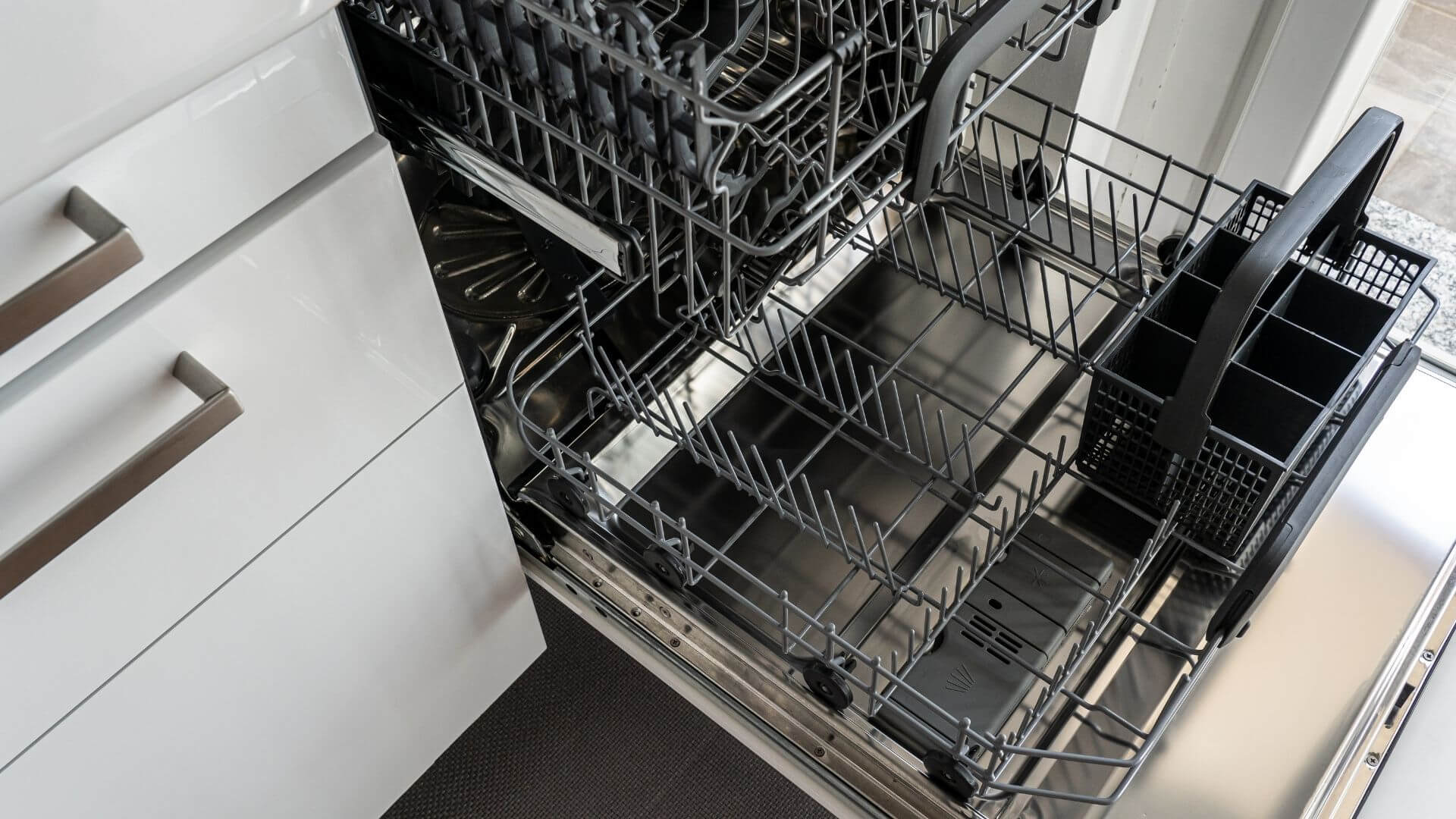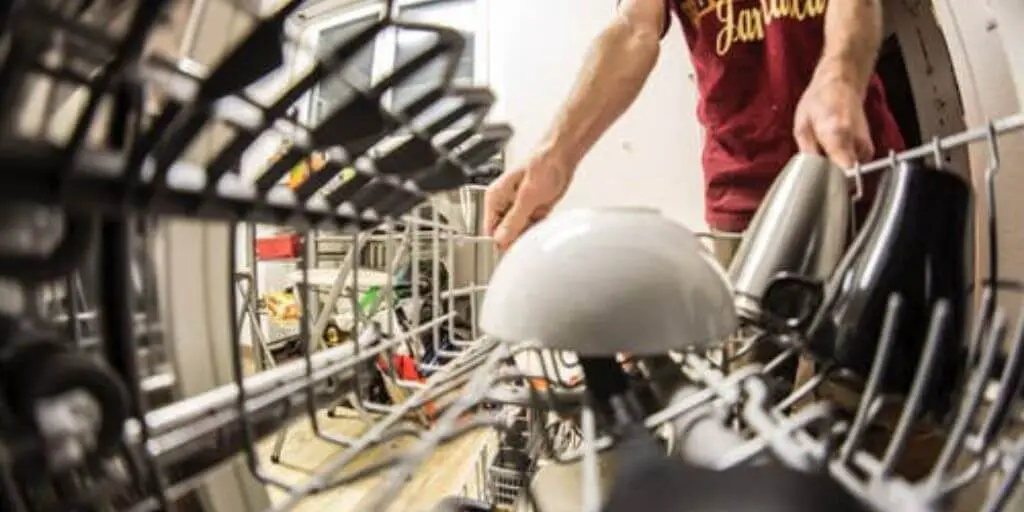What Makes A Dishwasher Quieter?
Are you yearning for a quieter house and wondering what makes a dishwasher quieter? Plenty of factors do so, with the common ones being:
Food disposal construction
Dishwashers with built-in food disposals are often louder than those without one. This means that if you are looking for a quiet dishwasher, go for one without a disposal unit. If your unit has a food trap system instead, clean it regularly to keep your unit running quietly.
Quality of material used in construction
It goes without saying that a dishwasher made from quality materials will be much quieter than one made from low-quality materials. The type of materials used in the construction will also affect the decibel rating. For example, dishwashers with a steel tub will produce less noise than one with a plastic tub.

Water movement
The water noises come about as water gets into the dishwasher, and cycles through the unit before being pumped out. Your dishwasher will make noise at different stages of the water movement cycle.
For example, it will make noise as the water moves through the water pump, as the drain pump removes water from the extra space, as water bounces off the various surfaces, and so on.
Manufacturers have come up with ways of minimizing the noise that the dishwashers make as the water moves around. Some of the tricks they use include: using quieter pump systems, redesigning the washing process, and preventing the dishwasher from constantly running at full power.
Manufacturers also add insulation around the dishwashing unit, keeping as much noise as possible inside the dishwasher.
If you are looking for the quietest dishwashers in the market, go for Bosch dishwashers. Other excellent brands to try out include: Miele and Whirlpool.
How can you make your dishwasher quieter?
Besides buying a quieter dishwasher, there are plenty of other tricks to keep your appliance as quiet as possible. Some of these tricks include:
Rinse out the dishes
In addition to excess food and debris giving the dishwasher a hard time, so you don’t have as clean dishes as you want, it also makes the appliance noisy. A tell-tale sign you are allowing too much food into your appliance is grinding noises during a cycle.
Simply rinse off the dishes before placing them in the dishwasher to get rid of these noises. Remember that you don’t have to clean the dishes—rinsing them off is enough.
By so doing, you prevent your appliance from making noise and prevent your appliance from clogging up. When you don’t scrape off the excess foods from your dishes, you put your appliance at the risk of clogging up.
Use your appliance properly.
Did you know how you use your dishwasher goes a long way towards determining how efficiently and quietly it functions?
As a rule of thumb, don’t overload your appliance. Also, regularly inspect the dish racks and ensure they are in place. Remember that it’s common for dish racks to be pulled off the rails due to daily and frequent use.
When you run your dishwasher without first inspecting the rails, they are bound to make a lot of unnecessary noise.
Before running a cycle, inspect the racks and runners and ensure they are securely in place. If not, push the racks back in the runners. You also should check the fasteners holding the parts together, and if loose, prevent the clanging sounds from coming about by tightening them.
Keep your dishwasher firmly held in place.
A dishwasher that isn’t properly held in place will undoubtedly make noise, and you don’t want this, do you? A tell-tale sign that your dishwasher isn’t properly fastened in place is if it leans forward on opening the door.
You will need to anchor it to the cabinet or counter in such a case.
Fix the mechanical problems
It’s normal for new dishwashers to make squealing noise for the first few wash cycles, after which the noise goes away. If you have an aged appliance and it’s making noise, it needs repair.
Common noises in old dishwashers are rattling noises often resulting from worn-out motors.
You can fix some of the dishwasher problems by yourself, but let it be done by an experienced professional for the best outcome.



